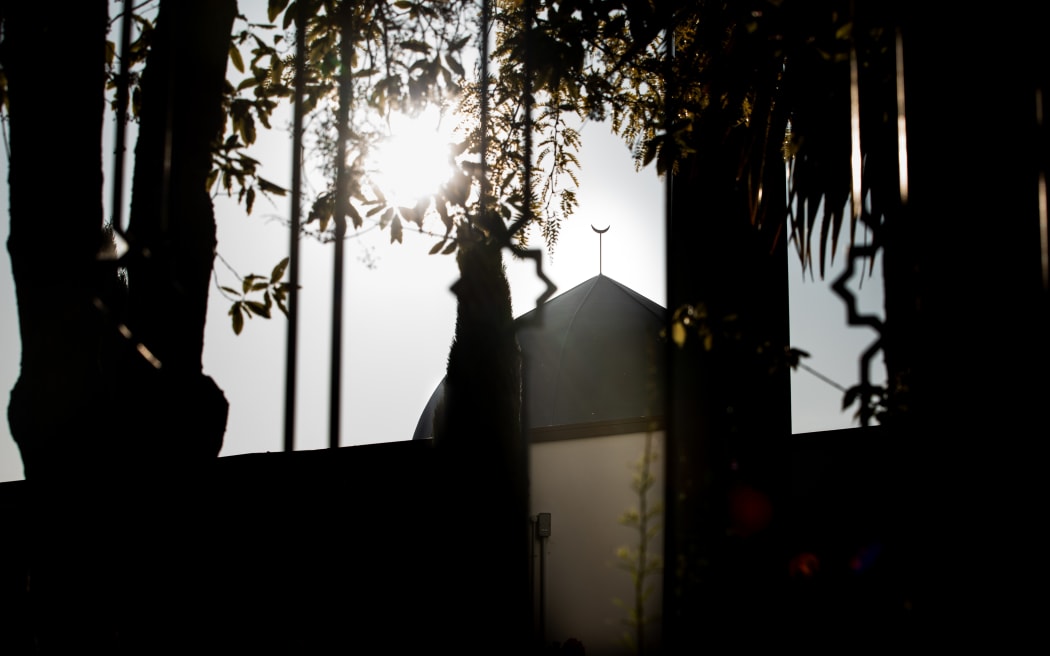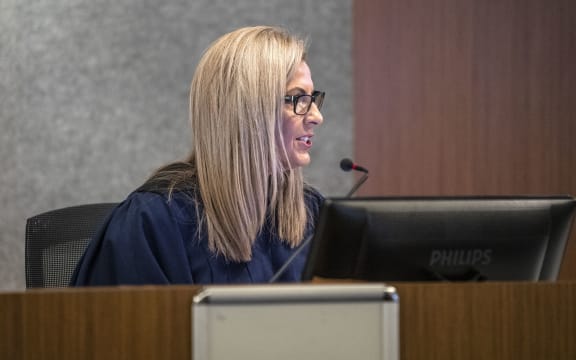
Photo: RNZ / Samuel Rillstone
An inquest into the 2019 Christchurch terrorist attack will examine whether an emergency exit door at one of the mosques did not work during the mass shooting that claimed the lives of 51 people.
Coroner Brigitte Windley will lead six weeks of public hearings into the murder of worshippers by white supremacist Brenton Tarrant at the Al Noor Mosque and Linwood Islamic Centre, from 24 October.
She had identified nine key issues for the first phase of the inquiry. They included the events of the day, the initial emergency response, whether anyone could have been saved with faster medical treatment, and whether the terrorist had direct assistance from anyone else on 15 March.
The inquest will now also consider a tenth issue in whether the emergency exit door in the south-east corner of the Al Noor mosque's main prayer room "failed to function" to allow "egress" during the massacre, and if so, why.
There are more than 140 interested parties in the coronial inquiry, many of whom are immediate whānau of the 51 people who lost their lives.
The terrorist's status as an interested party in relation to one of the issues has been revoked and he was not expected to take part in the inquiry's first phase.

Coroner Brigitte Windley (file image). Photo: POOL / STUFF LTD
The inquiry follows the criminal investigation and prosecution process and the Royal Commission of Inquiry.
Hearings were scheduled to take place in May and June but the inquest was delayed because of the formidable workload for counsel involved in an inquiry of such unprecedented scope and scale.
Following the first phase of the inquest, the coroner will consider three remaining issues, including the firearms licensing process followed by police, online radicalisation and the community's ability to respond to the risk of violent extremism.
The Australian gunman was sentenced to life in prison without parole in 2020 on 51 counts of murder, 40 of attempted murder and one of terrorism.
He opened fire inside the Al Noor Mosque while broadcasting the attack live on Facebook, killing 44 people, two of whom died of their injuries in hospital.
The terrorist then drove to the Linwood Islamic Centre where he shot a further seven people dead.
Tarrant last year filed an appeal against his conviction and sentence last November, claiming he only pleaded guilty "under duress through torture".
While the 2020 Royal Commission concluded the shooting could not have been prevented, it identified a host of failings, including a lack of proper gun licence checks and a preoccupation with Islamist extremism by counter-terrorism officials.

